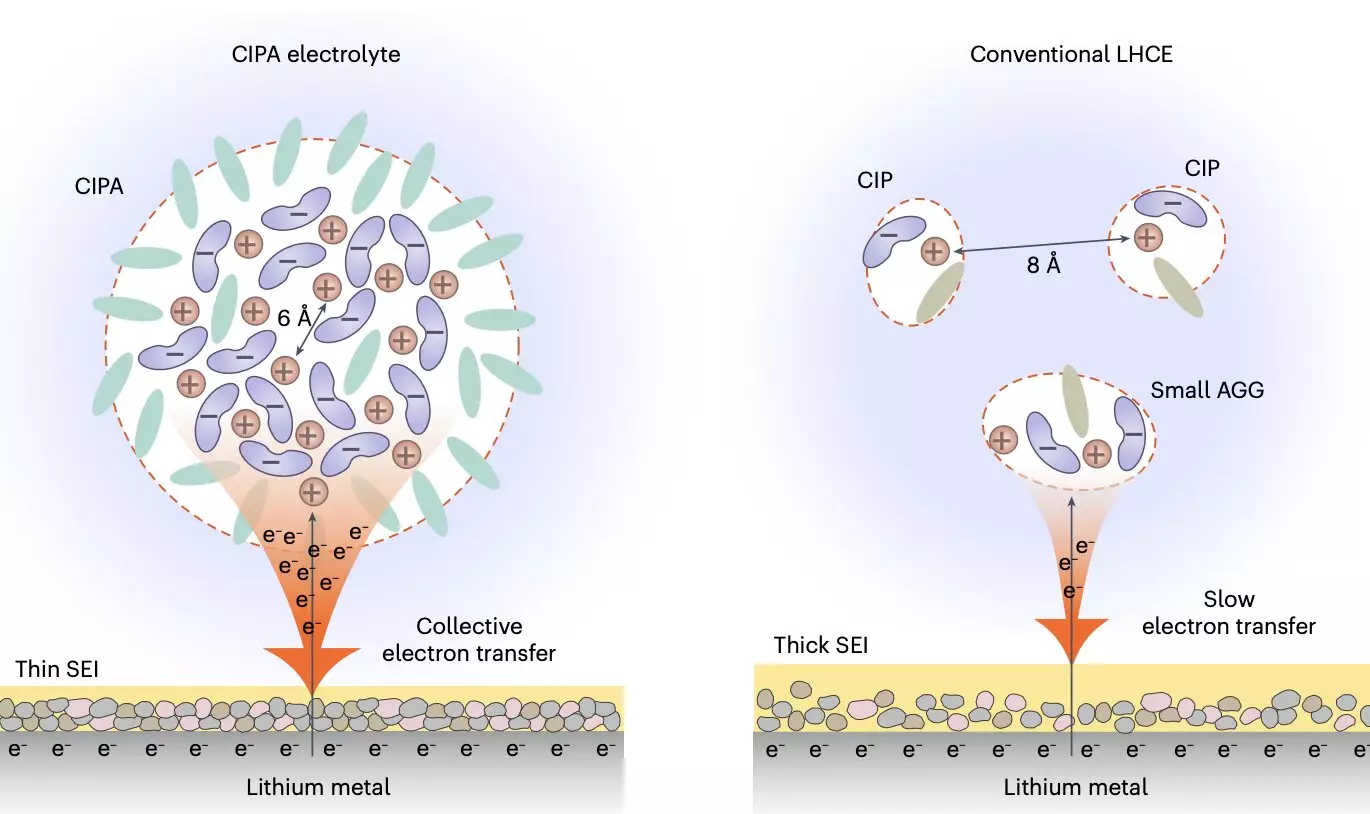Lithium-metal batteries have long been hailed as the next big thing in battery technology, promising significantly higher energy densities than the current lithium-ion batteries. However, one of the most significant limitations of lithium-metal cells has been their short lifespan. Researchers at the University of Science and Technology of China, in collaboration with other institutes, have recently introduced a new electrolyte design that could potentially revolutionize lithium-metal batteries.
The new electrolyte design, outlined in a paper in Nature Energy, features a unique nanometer-scale solvation structure, termed compact ion-pair aggregates (CIPA). This innovative approach aims to address the challenges faced by lithium-metal batteries and pave the way for the practical implementation of these high-energy density cells.
One of the main obstacles hindering the widespread adoption of lithium-metal batteries is their limited cycle life, typically around 50 cycles. This is in stark contrast to commercial lithium-ion batteries, which can endure approximately 1,000 cycles while maintaining good performance. The primary reasons for this lower lifespan include the growth of lithium dendrites, the reactivity of lithium-metal, and the degradation of the electrolyte.
Researchers, such as Prof. Shuhong Jiao, have been working tirelessly to overcome these challenges and unlock the full potential of lithium-metal batteries. Their focus has been on stabilizing the interfaces between the electrolyte and electrodes, a crucial element in prolonging the lifespan of these high-energy density cells.
The Role of Electrolyte Design
Approximately five years ago, Prof. Jiao and her team developed an electrolyte that could simultaneously stabilize the anode-electrolyte and cathode-electrolyte interfaces in lithium-metal battery cells. This breakthrough in electrolyte design aimed to suppress the degradation of the electrolyte and enhance the overall performance of lithium-metal batteries.
The electrolyte plays a critical role in lithium-metal batteries, influencing the formation of the solid electrolyte interface (SEI) and the plating behavior of lithium-metal. By fine-tuning the solvation structure of the electrolyte, researchers can improve the interfacial behavior and stability of these advanced battery systems.
In their recent study, Prof. Jiao and her colleagues have taken electrolyte design to a new level by focusing on the mesoscopic solvation structure. By introducing large compact ion-pair aggregates (CIPA) into the electrolyte, they have achieved a breakthrough in the formation of a thin and stable SEI on the lithium-metal anode.
The collective reduction behavior of the CIPA structure has resulted in a homogeneous and dendrite-free lithium deposition, significantly reducing the specific areas of the lithium-metal anode. This, in turn, suppresses the decomposition of the electrolyte and improves the overall performance and lifespan of lithium-metal batteries.
The Future of Lithium-Metal Batteries
The newly designed electrolyte not only enhances the stability of the lithium-metal anode but also suppresses the dissolution of transition metal elements from the cathode, improving the overall stability of the battery system. Through continued research and collaboration, researchers hope to further extend the cycle life of lithium-metal batteries and achieve even higher energy densities.
The potential of this new electrolyte design has been demonstrated in a 500 Wh/kg lithium-metal pouch cell, which retained 91% of its energy after 130 cycles. This promising result opens up new possibilities for the future of lithium-metal batteries and paves the way for higher energy densities and longer lifespans in advanced battery technologies.


Leave a Reply